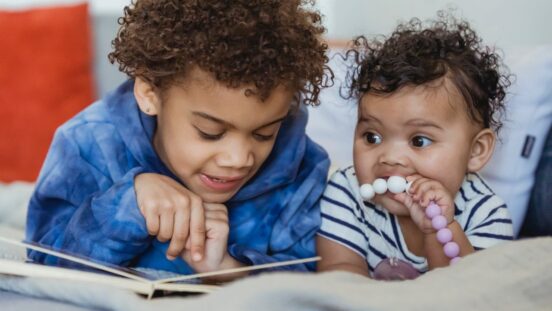Education experts on the benefits of sending your child to preschool
Why parents are opting for two years of early education to give their child a head start.
By Jae Fraser, Managing Director, Little Scholars
Parents are realising that preschool is important to give their child a head start when it comes to formal schooling, and that means three-year-olds are being enrolled more than ever.
Parenthood is a labyrinth of choices and decisions that can be tricky to navigate.
Work or stay at home? Private or public school? The list goes on (for at least the next 18 years) and a decision about preschool is one of big decisions when I comes to your child’s education.

Studies have proven huge benefits for kids who get two years of preschool education
The Australian Government provides funding to all states and territories to ensure all children have universal access to early childhood education, particularly in the year before they start school. There might still be a fee, and your local preschool can tell you about the fees it charges.
While it’s your choice to send your child to preschool, universal access ensures all Australian can go to a quality early childhood education and care program in the year before they start school.
If your child has a positive experience in early childhood education and they are likely to have a better chance of keeping up with their peers, staying in school and enjoying learning right through her teenage and adult years.
Why preschool is important
Global studies in this area have suggested huge benefits to exposing children to two years of pre-kinder education. With ninety percent of a child’s brain development occurring in their first five years of life, preschool helps to maximise growth during this critical window.
Some early key benefits include:
- Increased curiosity and love of learning
- Increased physical wellbeing through daily physical activity
- Increased emotional wellbeing and early development of positive self-concept
- Early social development and positive behaviour
- Early development of trust in other children and adults
- Early understanding of discipline and structure
- Early development of writing skills
- Improved foundational reading and numeracy skills
Later-life benefits include:
- Decreased chance of needing government assistance
- Decreased chance of leaving high school early
- Less likely to commit a felony
- More likely to go to university
- More likely to own a home
- Improved economic participation
- Improved health outcomes
- Improved family wellbeing

Increased emotional wellbeing and early development are a huge benefit of preschool education.
Based on these indicators, early education institutions across Australia are developing programs that cater to both 3 and 4-year-old children. Many facilities offer a school readiness program for children preparing for ‘big school’ while programs for 3-year-olds focus more on cultivating social and emotional skills.
Developed and run by tertiary qualified early childhood educators, three-year-old programs focus on fundamental areas such as sharing, turn-taking and participating in group settings. Some facilities, offer special innovative and developmentally appropriate extracurricular experiences like nature play, yoga, Japanese classes, cooking lessons and sports sessions, all delivered by experts in their field.
Through such variety and exposure to new concepts and skills, children are constantly challenged and encouraged to experiment as they learn. This positive risk-taking in a supportive and safe environment is a mentality that can stay with children far beyond the preschool years.
Furthermore, the growing independence that they experience by participating in such programs is invaluable to the development of their positive self-concept as increasingly autonomous and self-aware little people.
Story continues after video …
Furthermore, the growing independence that they experience by participating in such programs is invaluable to the development of their positive self-concept as increasingly autonomous and self-aware little people.
Ultimately, children with two years of preschool education prior to government endorsed kindergarten class are generally better prepared for the transition into formal schooling. Evidence shows that even moderate participation in preschooling leads to a greater likelihood that a child is equipped with the social, emotional and cognitive skills required to engage in learning and experience early academic success.




